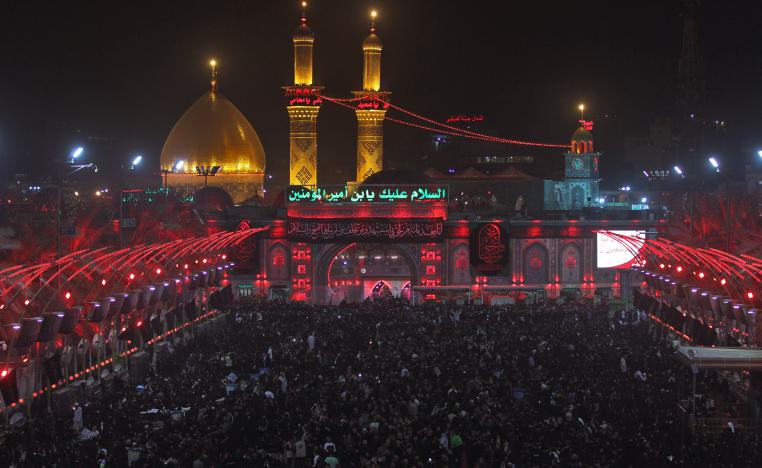
Local actors dressed as ancient warriors re-enact a scene from the 7th century battle of Karbala in Najaf, Iraq.
KARBALA - Millions of Shiite Muslims gathered at shrines and mosques in Karbala and other parts of Iraq on Thursday to mark the climax of the annual ritual of Ashura with expressions of suffering.
Huge crowds came from all over the world to commemorate the slaying of Imam Hussein, grandson of the Prophet Mohammed.
Most Sunni Muslims also mourn Hussein's death, but less fervently, and Ashura is a reminder of Sunni-Shiite rifts dating from disputes over the Prophet Mohammad's succession.
In the past, suicide bombers staged attacks on the mass gathering hoping to trigger sectarian tensions.
Those days are gone. Iraqi worshippers are able to immerse themselves in their faith, setting aside other problems that impact daily lives, including poor government services, unemployment and corruption.
Ashura is the 10th day of the lunar month of Muharram when according to Islamic tradition Imam Hussein was killed in battle in 680.
It is observed in Iraq and in other countries with sizeable Shiite communities, including Afghanistan, Azerbaijan, Bahrain, Iran, Lebanon, Pakistan, Saudi Arabia and Syria.
On the first day of Muharram, the army of Caliph Yazid laid siege to Hussein and followers in the desert near Karbala. Hussein was killed in battle 10 days later after he had refused to pledge allegiance to Yazid.
Hussein was decapitated and his head was taken to Damascus, the seat of the Ummayad dynasty to which Yazid belonged.
Self-flagellation is a big part of the ritual.
On Thursday, crowds of pilgrims brandished swords. One man gashed the head of a teenager with a knife. Blood dripped down their heads to white smocks. A pilgrim banged a drum.
"Blood is but a simple thing we offer to Hussein. All we offer Hussein is actually nothing," said pilgrim Haider Sabah.
"Even if we give our lives for him it is not enough. We are ready to offer all we have, our lives, our children and our families for Hussein to have his intercession in doomsday."
'Not just a ritual'
Millions more Shiite Muslims around the world performed mourning rituals amid heightened measures in many places to protect against sectarian attacks.
Red and green banners fluttered in Shiite neighbourhoods in Kabul, the Afghan capital, while armed volunteer groups stood guard at mosques and major intersections.
Attacks in recent years targeting the country's mainly Shiite Hazara minority have been claimed by an affiliate of Islamic State, and worsening security has led to a sharp reduction in large public gatherings.
In Bangladesh, a majority Muslim nation of 160 million, where Islamist militants have targeted Shiite shrines and mosques over the past few years, authorities said they had tightened security.
"Although there is no specific threat, we have taken all possible measures to avoid any unexpected incidents," said Asaduzzaman Mia, the chief of metropolitan police in Dhaka, the capital.
The Ashura rituals sometimes involve bloody self-flagellation or cutting to signify a link with the sufferings of Hussein, whose death symbolises a wider struggle against oppression and tyranny.
"It is not just a ritual, but also an occasion to confess the mistakes we have made in the past," said Humayan Kabir, a Shiite Muslim in the old part of Dhaka.
The death of Hussein eventually led to the division of Islam into the two main Sunni and Shiite sects and in recent years, the festival has been scarred by bloody sectarian attacks in many countries.
In India, Shiites were making preparations to mark the festival on Friday, in line with the customary sighting of the moon.
"We enact the battle of Karbala and want to show that if we had been there we would have fought alongside Hussein and his family," said Nasir Hussein, a resident of the disputed Himalayan region of Kashmir.
Mourners will gather in the financial capital of Mumbai on Thursday for a pre-Ashura procession during which they whip themselves, walk over burning coals and perform with fire.
"The stand that Imam Hussein took all those years ago reinforces my belief in the goodness of society," said Najaf, a mourner in India's southern tech hub of Bengaluru.
"It reminds me to fight for my beliefs no matter what. He lost the battle, but what he fought for still holds true to this very day."